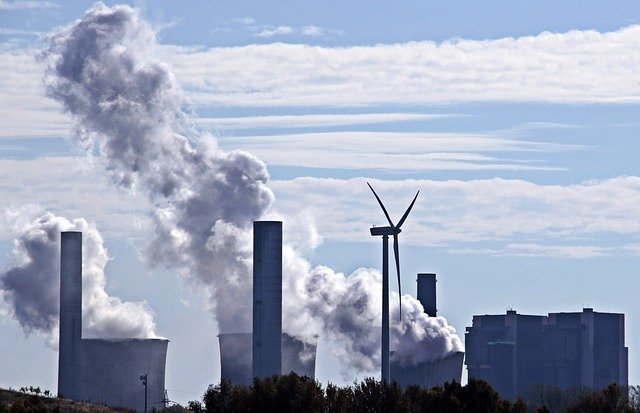ESG
EXCLUSIVE: Edmond De Rothschild AM Pessimistic About Outcome Of COP29

After two disappointing years, Jean-Philippe Desmartin, head of responsible investment at Edmond de Rothschild Asset Management, remains pessimistic about the outcome of the 29th United Nations Climate Change Conference (COP29), after it openeed in Baku, Azerbaijan, this month.
Despite a breakthrough being made on the first night of the talks on carbon trading, Jean-Philippe Desmartin at Paris-based Edmond de Rothschild Asset Management, is not expecting much from COP29, dubbed the “finance COP.”
Countries attending COP29 gave the go-ahead last Monday to carbon credit quality standards which are needed to launch a UN-backed global carbon market that would fund projects that cut greenhouse gas emissions such as forest conservation. But Desmartin told this news service in an interview that carbon trading has been a disaster for the past 10 years and this is “a very small achievement.” “It has already come in for criticism from key stakeholders,” he added.
A big elephant in the room is US President-elect Trump, he continued, who has said again that he would pull out of the global Paris climate agreement, which lays the groundwork for the planned UN-backed carbon market. “A lot of countries like Saudi Arabia will see if the US moves away from the Paris deal which is designed to limit global temperature rises to 1.5°C and to keep them well below 2°C,” he added. The departure of Argentina from the talks in Baku has already fueled such concerns.
“There is also no debate scheduled at COP29 on curbing fossil fuel consumption. Another elephant in the room,” Desmartin continued.
An open letter to the United Nations, with signatories including the former head of the UN climate body (UNFCCC), also says that the UN climate talks are “no longer fit for purpose” and should only be hosted by countries who are trying to give up fossil fuels. The letter calls for “strict eligibility criteria for host countries to exclude those “who do not support the phase out/transition away from fossil energy.” Azerbaijan is a small developing country that relies heavily on oil and gas revenues. "It is good news that the next COP will be held in 2025 in Brazil, a leader in renewable electricity. It will help to regenerate the Paris deal," Desmartin said.
Last year, the COP28 statement called for a consensus on “transitioning away from fossil fuels in energy systems, in a just, orderly, and equitable manner.” Alongside the fossil fuel pledge, the commitment called for a tripling of global renewable energy by 2030, a doubling of average annual energy efficiency gains by 2030, a rapid phase down of “unabated” coal and coal power generation, an acceleration of zero and low emissions technologies (such as renewables and nuclear), a “substantial” reduction in methane emissions by 2030, and phasing out some fossil fuel subsidies “as soon as possible.”
Desmartin highlighted that reducing methane emissions is a key concern because it is responsible for 30 per cent of greenhouse gas emissions. “Progress is urgently needed here in 2024, which is a turning point, but some big issues are just not on the table,” he said.
The conference, which ends on November 22, also focuses on agreeing and adopting a new climate finance target, replacing the $100 billion per annum commitment set in 2009. The New Collective Quantified Goal (NCQG) is a key item on the agenda, with the parties working to finalize a more ambitious climate finance goal to become effective from 2025, moving on from the $100 billion per annum agreed in 2009. Desmartin believes that something will be agreed on this.
Overall, Desmartin thinks that Baku will be another year of transition, with disappointing results. “The good news is that many investors have not changed their views on combating climate change and continue to invest in solutions like renewable energy,” he said.
In May, one year after joining the Net Zero Asset Managers (NZAM) initiative, Edmond de Rothschild AM announced that €26 billion ($28 billion) of its assets under management – or 47.5 per cent of in-scope assets – will be managed in line with attaining net zero emissions by 2050. The strategy reflects the firm’s commitment to addressing the global challenges caused by climate change.
The NZAM initiative is an international group of over 300 asset managers with around $60,000 billion in assets under management. Signatories to the initiative have committed to the goal of achieving net zero by 2050, consistent with the efforts deployed internationally to contain global warming to 1.5°C.
With this pledge, Edmond de Rothschild said it has reaffirmed its conviction that finance has a key role to play in the environmental transition. As such, it will be developing investment solutions addressing environmental and social challenges, while delivering attractive financial returns for its clients. See more commentary here.